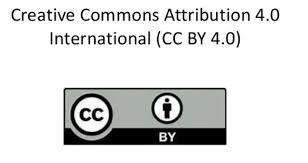Effect of replacing wheat bran with de-oiled rice bran on growth and blood parameters of native sheep
DOI:
https://doi.org/10.47440/JAFE.2023.4403Keywords:
Wheat bran, de-oiled rice bran, lamb growth, dietary substitution, blood parametersAbstract
This research aimed to explore the impact of substituting wheat bran with de-oiled rice bran on the growth performance and blood parameters of indigenous sheep. Twelve 10-month-old lambs were randomly assigned to four dietary groups, each with three replications. The control group (T1) received a standard diet, while the other groups (T2, T3, and T4) had varying proportions of de-oiled rice bran, wheat bran, and green grass. Results indicated significantly higher body weight gain in T3 and T4 compared to T1, with the highest gain observed in T2. Glucose levels remained non-significant. Notably, T3 exhibited significantly higher
levels of albumin, calcium, and phosphorus, while T1 showed lower values. Blood urea and blood nitrogen were notably higher in T3, exhibiting a gradual increase across treatment groups from T1 to T3. The findings suggest that replacing wheat bran with 50g of de-oiled rice bran, supplemented with grazing, positively influenced growth performance and blood profiles. Substituting wheat bran with 50g and 100g of de-oiled rice bran significantly enhanced growth with increased nitrogen levels in the blood, effectively maintaining blood parameters within the normal range. Consequently, replacing wheat bran with de-oiled rice bran at a certain percentage (33%) appears to be a cost-effective strategy for maximizing the growth performance of native sheep under semi-intensive conditions.






 Publisher:
Publisher: 